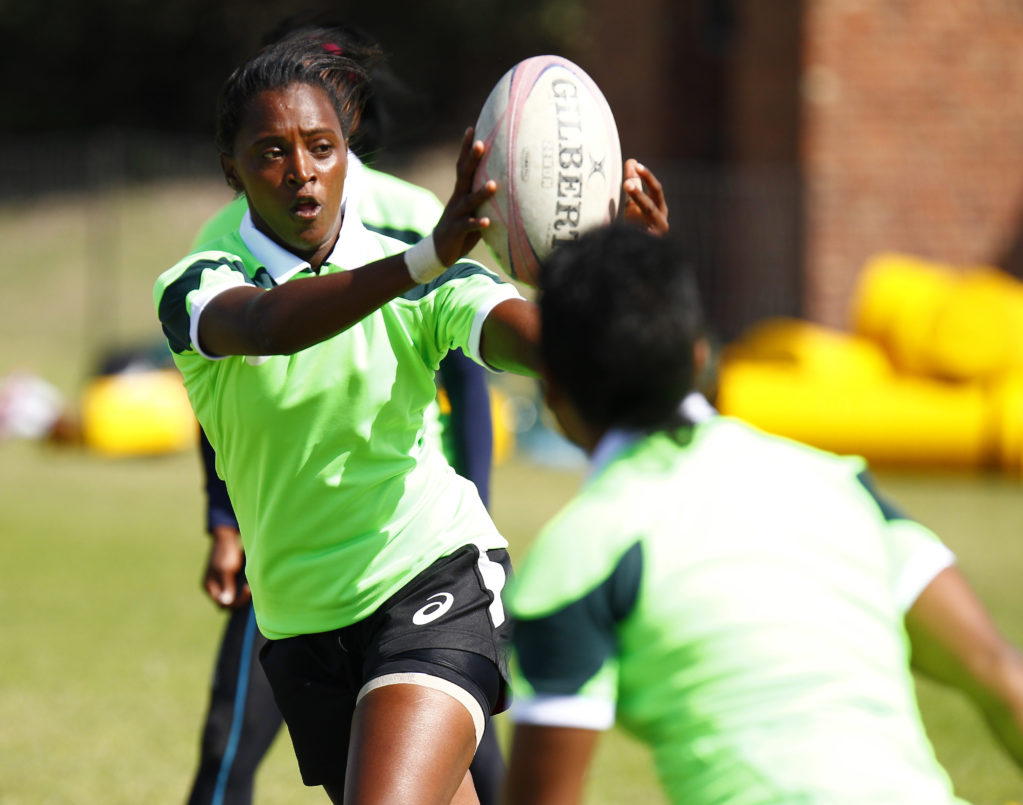South Africa’s national rugby team are the pace-setters of the game on the continent. They are physically imposing, tactically uncompromising and all-round fearsome. And that is only the men.
The Springboks have taken home two World Cups and advanced out of the group stage at every World Cup they have participated in. Their female counterparts have not been quite as successful in trophy terms but in October, will turn out at their third consecutive World Cup. They will be the only African team in attendance and are serious about representing the continent better than ever before.
In 2006, the Springbok women did not win any of their five matches and finished 12th. Four years later, despite suffering hefty defeats to New Zealand and Australia, they beat Wales twice to end in ninth position. This time, they are targeting the quarterfinals.
“I believe we have the resources to achieve this,” says Mandisa Williams, the captain of the women’s team.
Since the last time the squad competed at a global event, the way their sport is run has changed for the better. In January, the South African Rugby Union (SARU) contracted 15 female players for the first time in its history. The contracts run from five to 12 months. In February, they appointed former Springbok prop Lawrence Sephaka as coach and in March, they unveiled an extensive plan to prepare the team for the World Cup.
South Africa named a strong 26-woman squad for the World Cup which included seven players who turned out at the 2010 tournament and four who played both then and in 2006. In preparation for this month’s competition, they held a training in camp in Pretoria in June and traveled to London and France for warm-up matches. All those measures have been put in place to make sure they are as ready as they can be.
“A lot of effort has been put into our preparation for this World Cup. We have had help from world-class coaches such as former Springbok flyhalf Louis Koen, former French prop Pieter de Villiers, highly-rated defence coach Jacques Nienaber and forward specialist Chean Roux, who have been working closely with us to improve our skills and technique,” says Williams.

The specialist coaching is an attempt to bridge the gap between South Africa and the rest, especially European and Australasian sides who have had a head start in developing women’s rugby.
“They have a regular international window in which they compete with other sides and some of those countries introduce women’s rugby as early as school level,” says coach Sephaka.
If the same could happen in South Africa, Williams believes the women’s game would grow even more. “South Africa needs to adopt structures where we have school and club leagues and where female teachers or coaches are empowered and monitored regularly because in the future we will need women to coach women,” says Williams.
While South Africa are at the point where they can examine their grassroots structures, other African countries can barely support a national team. “Unfortunately most other African countries are still far behind in terms of their women’s rugby teams, which is a huge crisis,” says Williams.
Uganda and Kenya are the other two sides that were in contention for the World Cup but neither came close to qualifying. Uganda beat Kenya to reach a playoff with South Africa and it was then that the stark differences between them and the Springboks emerged. While South Africa readied for the match with a tour to Colorado, in which they played women’s university teams, the Ugandan women had to prepare by competing against men’s club teams in their own country.
Red Pepper newspaper reported that Uganda’s training suffered because of lack of finances. “Uganda Rugby Union is broke and cannot afford to pay for other teams to come to Uganda for build up matches, neither can they finance the teams’ preparations to Europe,” wrote Stephen Muneza in an article in July 2013.
The match took place in September, and South Africa won 63-3 but Williams believed the margin was harsh on Uganda.
“Uganda has really improved as a team in the last five years. They have players willing to put their bodies on the line during matches and they have a fantastic fighting spirit. Uganda can easily destruct opponents’ style of play,” says Williams.
Uganda’s women’s rugby, like women’s sporting codes throughout the continent, faces more than just monetary challenges but also ones that stem from lack of publicity
and awareness.
“Female sporting codes across the board face the same challenges. We do not receive a lot of recognition and support and we do not play matches as regularly as we would like to. Women’s rugby events are also not televized often, so it makes it tough to attract more women to participate in the sport,” says Williams.
However, incentives to play rugby are growing. Not only is the World Cup a regular feature but in 2016, women’s rugby will be played at the Olympic Games. Africa would love to have some of its teams represented there.
